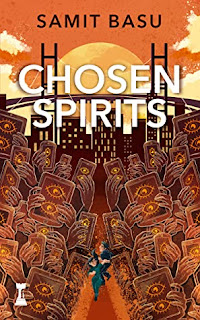My Own Private Country
The climax of Manto's "Toba Tek Singh" is powerful because of Bishan Singh's moment of refusal--he will not travel to Hindustan, he will not accept that he is physically in Pakistan, he will not accept the broader idea of the partition of his country. He declares that Toba Tek Singh is "here"; and while that might simply be interpreted as "on this side of the border", that the narrative itself constantly elides the difference between the man and the land means that the intuitive reading is "here, where I am". Essentially, in that moment, Bishan Singh creates a speculative country of his own; a space that exists outside the border politics of India and Pakistan.
Creating a private country of your own is, while difficult, at least theoretically possible: the major obstacle seems to be getting your existence recognised and making other countries (who are likely to be a lot more powerful than you) respect your borders. There is a surprising amount of advice on the internet, and it mostly falls into the weird zone between discouraging and alarmingly thorough. See this page, which, while pointing out that starting a country of your own is difficult, has still provided some information about spaces that might be claimable under particular circumstances. (The suggestion that you start a cult to gain citizens is probably a joke; the dismissive tone with which the authors speak of Haiti is just unpleasant.) Historically, people have made the attempt: consider the Principality of Hutt River in Australia, or other micronations.
(It's probably unsurprising that several of these are claims to disputed land; part of what makes Bishan Singh's creation/claim to Toba Tek Singh sympathetic is perhaps that in all the horror of partition he is the only person who doesn't seem to be ripping away another person's identity through the reclassification of the land to which they belong.)
That wikipedia page has a list of attempted micronations, which have had varying degrees of success--some, like Asgardia (in space) haven't yet come into being; others, like The Republic of Rose Island, have lost their territory (the Italian government blew up the platform on which it was built) but continue in exile.
Fictional micronations have had a better time of it, from the Family Guy episode "E Peterbus Unum" (which I've never watched) to Aristophanes's The Acharnians, in which a private citizen wrangles a private peace treaty with Sparta, much to the fury of his warmongering neighbours.
I'm just about to start a reread of Nick Mamatas's Under My Roof, which was first published (and which I first read) in 2007. Written in post-9/11 America, this short novel is the story of Herbert Weinberg, a 12 year old boy whose father has declared the family home independent from the US, guarding his territory with a nuclear weapon and naming his son the Minister of Information. I remember this being hilarious--I will be reviewing it once I've finished, and I'll be interested to see whether it holds up a decade ;ater/


Comments
Post a Comment